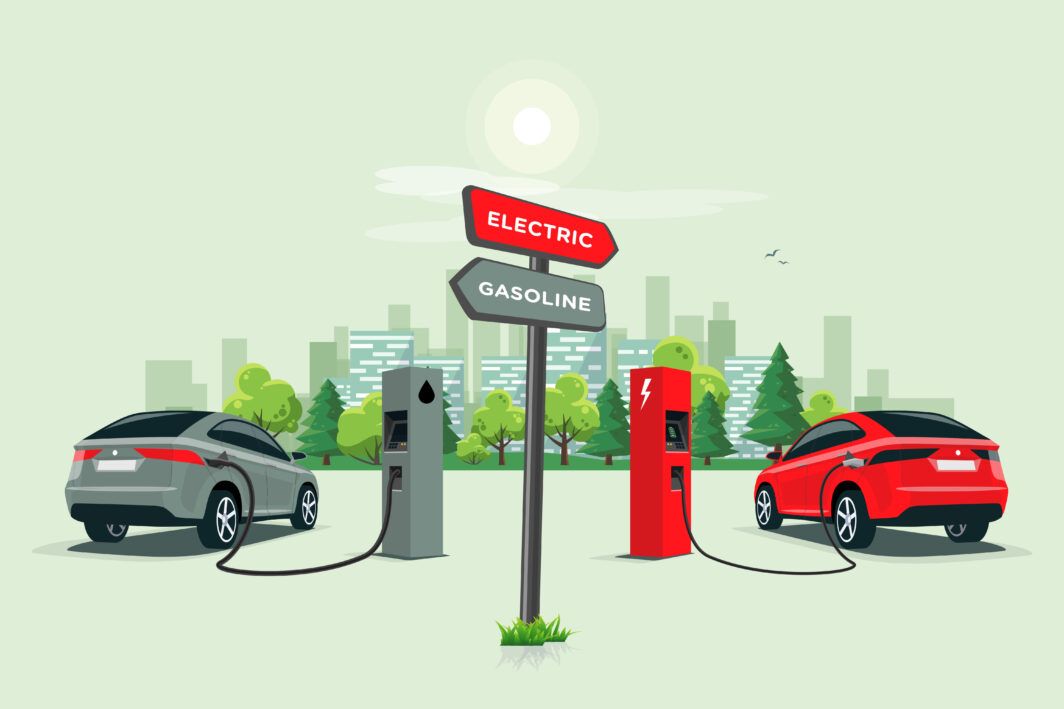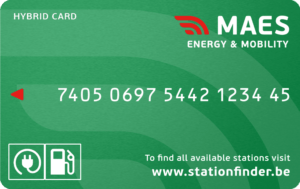
Electric charging with MAES
Here you can find all useful information about electric charging
Why (already) opt for a hybrid or electric car
Electric and Hybrid cars are becoming more popular and seem to be one of the best options for cars in the future. But should you already make the switch or is it best to wait? Below you can find some important motivations!
Why make the switch now? Or are you better off waiting a little longer?
More environmentally friendly
Hybrid (provided they are actually electrically charged) and fully electric cars produce less local exhaust fumes than traditional petrol or diesel cars, making a positive contribution to the environment. Of course there is more than just the local emissions, you have to look at the whole process. Here you can find a more in-depth analysis;
Silent driving experience
Electric cars make less noise when driving. While some people enjoy a roaring engine, many opt for an electric car precisely because it makes less noise, which can lead to a quieter and more comfortable driving experience;
Support for sustainable energy
By opting for an electric car, you can use sustainable energy sources, such as solar and wind energy.
Strong performance
Many electric cars offer faster acceleration and more torque than comparable petrol or diesel cars;
Tax advantages
In Belgium, owners of electric cars can benefit from tax benefits, such as lower registration and road taxes. These support measures are gradually being phased out by the government.
Available models
More and more different hybrid and electric models are becoming available on the Belgian market, including both small city cars and large family cars. These are often still on the expensive side, but more and more manufacturers are finding a way to keep the price down.
Government pressure
Older diesel cars are no longer allowed to drive in some cities. This will be expanded in the coming years. In addition, Europe will ban the production of cars on traditional fuels from 2035.
Why should you not (yet) opt for a Hybrid or electric car?
Cost price per kilometer
This point used to be in the pro column, it was one of the stronger point for the electric car, it was cheaper in the long term. Then came the gas and electricity crisis, the limited consumption costs were one of the reasons why you should switch. Not only was electric charging cheaper, maintenance was also cheaper and the car usually lasts longer. Certainly for people with limited consumption, for example an average of 15,000 kilometers per year, they quickly amounted to 600 euros per year less than with petrol or diesel.
But since this crisis, this selling point has been lost. For 15,000 km you can pay up to 200 euros more per year with current prices than with a petrol car (source – De Tijd) and they charge the average price when you can charge at home. If you cannot charge at home or at work, the difference will be even greater. Although it is important here that you create your own account. For example, if you have solar panels or a good rate from your supplier, that may be different for your case.
Here you can find a more in-depth analysis;
Little infrastructure along the way
Within the range of 5 kilometres, the average Belgian can, so to speak, fill his car with traditional fuel. Everywhere he can find a gas station in good time and there is no need to make a long detour. But this is not yet the case with electric cars. If you can charge at home or at work and this distance is not too great, you will not be bothered by this. But charging on the go is not as simple as it seems. You can see them occure more and more now and we at MAES are also working on installing 100 ultra-fast charging stations at our stations in 2023.
But if you can only charge on the go, the low number of already available charging points can be disappointing, especially if the car becomes more popular than the network can be expanded. The cost also plays a major role here, if you have solar panels at home or you are allowed to charge at work, then it is not too bad. But if you can only charge on the go, you also pay the price for this. And then we don’t take into account traveling by car. The latter is certainly doable, but requires more planning than if you were still driving around with a normal petrol or diesel car.
Technology is still new
Because the technology in most hybrid and especially electric cars is still fairly new, there is also a higher initial cost for the same type of car. It is likely that the purchase price of electric cars will fall as technology improves, but at the moment this is a larger chunk of the budget.
Will government support continue?
The government is currently supporting the switch to electric driving through all kinds of subsidies. The reason behind this is that they want as many people as possible to make the switch as quickly as possible. But in the meantime, a whole shift has been happening in the car sector and Europe has also decided to stop selling new cars that emit CO₂ by 2035. The current government support will therefore soon no longer be necessary and the government will also lose the extra income from excise duties on fuel. It is therefore highly questionable whether the same support will still be there in 5 or 10 years.
Less reach
In terms of range, electric cars have made huge strides, but they are not yet a match for their diesel and petrol equivalents. In the meantime, there are certainly electric cars with a range of 900 km, but they come at a higher price. The average cars have an average range, in the more expensive class of 425 km, the middle class of 310 km and the low class of 230 km. This is of course a huge difference if you are often on the road. Here, too, the technology is still in its infancy, so to speak.
Charging takes longer
Charging also takes longer than refueling in a normal car. If you can always charge at home or at work, this is not really a waste of time, in fact , if you can always charge ike this, you even save time because you don’t have to stop on the way. But if that is not an option and you always have to load somewhere, you will easily lose extra time. The fast chargers that MAES is installing do ensure that you are good for hundreds of kilometers within 10 to 20 minutes to continue your journey back. But still a big difference with a car on traditional fuel, where you can refill in a matter of minutes and have a longer range. Still important to consider.
All useful information about electric charging with MAES can be found below.
FAQ
How much power do I need to charge my electric car?
The power required to charge an electric car depends on the capacity of the battery and the charging speed of the charging point. In general, the larger the capacity of the battery and the faster the charging speed, the higher the power required. An average electric car has a battery capacity of about 60 kWh and can be charged from 0 to 100% in about 8 hours with a charging speed of 7.4 kW. For faster charging speeds, for example at a fast charging station, higher power is required.
Can I charge my electric car at home?
Yes, most electric cars can be charged at home using a charging station or a regular socket.
Is it safe to charge an electric car?
Yes, it is safe to charge an electric car. Electric cars are designed to be safe while charging, and most charging stations have protection mechanisms to prevent overload and short circuits.
How much does it cost to charge an electric car?
This depends on the price of the electricity and the capacity of the charging point. In general, charging an electric car is cheaper than refueling with petrol or diesel.
Can I charge my electric vehicle while driving?
At the moment it is not possible to charge an electric vehicle while driving, as wireless charging technology is still under development.
How do I pay for charging my electric vehicle?
This depends on the charging infrastructure and the payment method that has been set up. For example, you can pay with a charge card (such as the handy MAES Hybrid card), via an app or via a credit card.
Where can I charge my electric car?
You can charge your electric car at public charging points, at fast charging stations, at home or at work.
What is the range of an electric car?
The range of an electric car depends on the capacity of the battery and the consumption of the car. On average, electric cars have a range of 200 to 300 kilometers.
